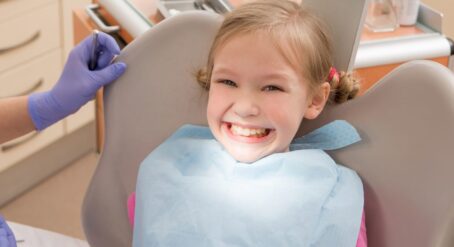You might be told that you have your mother’s eyes, or your dad’s nose, but has anyone ever said you have their teeth? While they’re less likely to be referenced, genetics and teeth are more closely linked than most people realise. Sure, there are a number of environmental factors that can change your smile as you grow, but your genetics such as size of teeth and jaws are genetically determined.
Here are some of the ways your teeth might be affected by your genetics:
Gum disease and tooth decay
While proper oral hygiene can help to protect your teeth and gums from disease or decay, some people may be genetically predisposed to these conditions.
In addition, your genes may also make you predisposed for some types of gum disease. While you should be concerned about the health of your teeth at any stage of your life, if you’re considering or undergoing orthodontic treatment is especially important as orthodontic appliances may place pressure on your teeth. Your orthodontist will assess the health of your teeth and gums before proceeding with any type of treatment because if this is not identified prior to commencing Orthodontic treatment, tooth loss may occur.
Crowding of teeth
There are a number of factors that lead to crowding of teeth, including habits, such as thumb sucking. However, your jaw size and shape is strongly related to your genes, which in turn affects how your teeth are likely to fit into your mouth. If there’s not enough room this can lead to overcrowding and crooked teeth.
If you had problems with overcrowding in your mouth and required orthodontic treatment as a teen, then it’s highly likely your kids will have similar issues. Remember half of the genes that control jaw size and teeth size are from each side of the family. This can either create a significant Orthodontic issue or in some cases it creates the ideal environment for a perfect bite and no issues.
Congenitally missing teeth
This is a genetic condition where one or more adult teeth never develop. Since there is no adult tooth to push through (which is usually what leads to a child’s wobbly teeth), many people have retained baby teeth. This is a significant issue and you need to seek out specialist advice about whether the baby tooth should be extracted and space closed with Orthodontic treatment or the baby tooth kept long term. This is another reason why it is recommended you bring your child in for an assessment with your orthodontist by age seven, rather than waiting until they’ve lost all their baby teeth.
Your orthodontist will be able to ascertain if they have any missing teeth and devise a strategy that will maintain the health of their teeth throughout the course of their treatment.
Whether you have any of these conditions and want to get your child’s teeth assessed, you can make an appointment with a specialist orthodontist who will help you understand the risk factors and best treatment options for your family.
Use our Finder Tool to search for an orthodontist near you.









